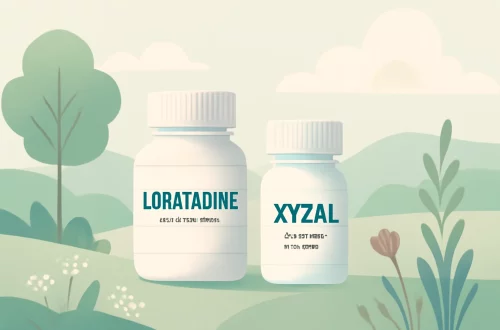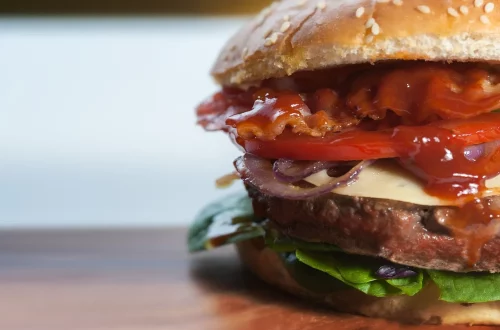
The Best Dog Bones for Puppies to Promote Healthy Chewing
When it comes to raising a puppy, one of the most delightful aspects is witnessing their playful nature and boundless energy. Puppies are naturally curious creatures, exploring their environment with enthusiasm. However, this curiosity often translates to a strong desire to chew on everything in sight. This instinctual behavior is not merely a phase; it’s a crucial part of their development. Chewing helps puppies relieve teething pain, explore textures, and even learn boundaries in their environment.
Finding the right chew toys or bones can significantly impact a puppy’s oral health and behavior. The market offers a plethora of options, each claiming to be the best for your furry friend. However, not all chew products are created equal. It’s vital to choose bones that are specifically designed for puppies, as they cater to their smaller jaws and developing teeth. High-quality, safe, and nutritious options can contribute to strong teeth and healthy gums while providing mental stimulation.
Moreover, the right chew toys can prevent destructive behaviors caused by boredom or anxiety. By redirecting their chewing tendencies to appropriate items, you can foster good habits and strengthen the bond between you and your puppy. In the following sections, we will explore different types of dog bones that can promote healthy chewing while ensuring your puppy’s happiness and well-being.
Types of Dog Bones Suitable for Puppies
When selecting dog bones for puppies, it’s essential to understand the different types available. Each type serves a unique purpose and offers various benefits for your pup’s chewing habits. The most common types include rawhide bones, natural bones, and synthetic options.
Rawhide bones are a popular choice among dog owners. They are made from the inner layer of cow or horse hides and are often processed to ensure safety. Rawhide chews come in various shapes and sizes, making them easy to find for your puppy’s needs. They are designed to be tough and durable, providing long-lasting entertainment. However, it’s crucial to supervise your puppy while they chew on rawhide, as small pieces can break off and pose a choking hazard.
Natural bones, such as those from chicken or beef, are another excellent option. These bones are typically less processed and can provide essential nutrients, including calcium and phosphorus. However, you should ensure that the bones are appropriately sized for your puppy to avoid any choking risks. Additionally, always opt for bones that are raw or properly cooked without any seasoning, as cooked bones can splinter and cause serious harm.
Synthetic bones, such as those made from rubber or nylon, offer a safe alternative to natural options. They are designed to withstand aggressive chewing and can be beneficial for dental health. Many synthetic bones come infused with flavors that appeal to puppies, encouraging them to chew. Some even have added dental benefits, helping to reduce plaque and tartar buildup as your puppy chews.
Ultimately, the best choice will depend on your puppy’s chewing habits, size, and preferences. By understanding the various types of dog bones available, you can make an informed decision that promotes healthy chewing and keeps your puppy engaged.
Benefits of Chewing for Puppies
Chewing is a natural behavior that plays a vital role in a puppy’s development. One of the primary benefits of chewing is dental health. As puppies grow and their teeth emerge, chewing helps to strengthen their jaws and promote healthy tooth development. It can also assist in cleaning their teeth, reducing plaque and tartar buildup, which can lead to more severe dental issues later in life.
Moreover, chewing provides mental stimulation for puppies. Puppies are energetic and inquisitive, often requiring activities that engage their minds. Chewing on bones or toys can keep them entertained, reducing the likelihood of destructive behaviors that arise from boredom. This engagement is crucial for a puppy’s overall well-being, helping them to develop focus and discipline.
Another important aspect of chewing is its role in relieving anxiety or stress. Just like humans, puppies can experience anxiety, especially when they are left alone or exposed to new environments. Providing them with appropriate chew toys can serve as a calming mechanism. The act of chewing can release endorphins, helping to soothe and comfort your puppy during stressful situations.
Additionally, chewing can serve as a bonding activity between you and your puppy. Interactive chewing sessions, where you encourage your puppy to chew on a toy while you play with them, can strengthen your relationship. It creates a sense of trust and understanding, helping your puppy to feel secure in their environment.
In summary, the benefits of chewing extend beyond mere entertainment. It is a crucial activity that supports dental health, provides mental stimulation, alleviates anxiety, and fosters bonding between you and your puppy. By providing the right chew options, you can ensure a healthy and happy development for your furry friend.
Choosing Safe and Healthy Chew Options
Safety should be the primary concern when selecting chew bones for puppies. Not all chew products are suitable for young dogs, and some may even pose health risks. To ensure the safety of your puppy, consider the following factors when choosing chew options.
First, always select chew bones that are specifically designed for puppies. These products are typically softer and easier to chew, catering to the delicate teeth and jaws of young dogs. Avoid giving them adult-sized bones, which can be too hard and may cause dental fractures.
Second, read the labels carefully to ensure that the chew bones are made from high-quality, natural ingredients. Avoid products that contain artificial additives, preservatives, or fillers. Opt for organic or natural options whenever possible, as these are generally safer and healthier for your puppy.
Additionally, monitor your puppy while they are chewing. Supervision is crucial, especially with rawhide and natural bones, as they can break into smaller pieces. If you notice any signs of choking or discomfort, remove the bone immediately. It’s also wise to replace bones that have become small or worn down to prevent any choking hazards.
Lastly, consult your veterinarian if you are unsure about which chew products are suitable for your puppy. They can provide personalized recommendations based on your puppy’s specific needs and health conditions.
By taking these precautions, you can ensure that your puppy has a safe and enjoyable chewing experience, promoting their health and happiness.
Creating a Chewing Routine for Your Puppy
Establishing a chewing routine can greatly benefit your puppy’s development and behavior. A consistent schedule not only helps direct their chewing tendencies but also instills good habits that can last a lifetime. Here are some tips for creating an effective chewing routine.
Start by designating specific times during the day for chewing. This could be after meals, during playtime, or as a calming activity before bedtime. By establishing a routine, your puppy will learn when it’s time to chew, helping to reduce any unwanted chewing on furniture or shoes.
Incorporate a variety of chew options into the routine. Providing different textures and flavors can keep your puppy engaged and prevent boredom. For instance, you might offer a rawhide bone one day and a rubber toy the next. This variety will help maintain their interest in the chewing activity.
Additionally, encourage positive behavior by rewarding your puppy for chewing on appropriate items. When you catch your puppy chewing on their designated bone, offer praise or a small treat. This positive reinforcement will help them associate chewing on the right items with a reward, fostering good habits.
Be patient and consistent. It may take time for your puppy to understand what is acceptable to chew on. Always redirect their attention to their chew toys if you catch them chewing on something inappropriate. With time, they will learn to focus on their designated items.
Finally, remember that chewing is not just a phase; it is a lifelong behavior for dogs. By creating a routine that promotes healthy chewing from an early age, you will help your puppy develop good habits that contribute to their overall well-being.
In conclusion, choosing the right dog bones for puppies is essential for promoting healthy chewing habits. By understanding the types available, the benefits of chewing, and how to select safe options, you can contribute positively to your puppy’s growth and happiness. Remember to create a routine that incorporates engaging chewing activities to foster good behavior.
**Disclaimer: This article is for informational purposes only and should not be considered medical advice. Always consult your veterinarian for health-related concerns regarding your pet.**




